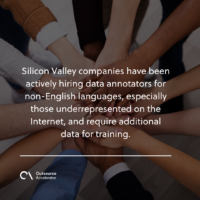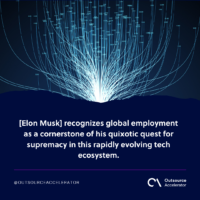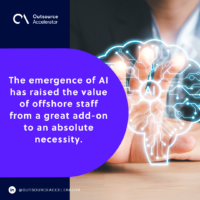The rise of AI tutors
The world’s tech billionaires are doubling down on artificial intelligence (AI) investments, which ironically, could lead to a massive outsourcing boom.
Silicon Valley companies have been actively hiring data annotators for non-English languages, especially those underrepresented on the Internet, and require additional data for training.
Elon Musk’s xAI is looking for remote AI tutors worldwide—particularly those fluent in English and at least one other language, such as French, Chinese, Arabic, or Hindi—to train language algorithms. Last year, Scale AI opened over 60 jobs in languages like Bengali and Urdu.
Outsourcing AI tutors is not new. In January 2023, it was revealed that ChatGPT was using Kenyan workers to train futuristic intelligence. Earlier this year, the world learned that Amazon relied on 1,000 outsourced workers from India to aid its Just Walk Out system.
What makes xAI’s initiative captivating is that Musk is offering $35 to $65 an hour for the position, which is a competitive rate in any part of the world. The tech scion is looking to improve his startup’s position in the AI segment. He recognizes global employment as a cornerstone of his quixotic quest for supremacy in this rapidly evolving tech ecosystem.
Perfect combination
These trends also shed light on how the AI job market will look in the near future. Plenty of skilled workers—not just coders and engineers—are needed to fill the gap between human expertise and AI technologies.
The surge in demand for bilingual workers shows how outsourcing and AI go hand-in-hand. Offshore workers are fluent in English and their native tongue, making them the perfect candidates to become AI language tutors.
Before the advent of AI, global firms hired offshore workers for various administrative tasks such as data entry, calendar management, and transcription. But the emergence of AI has raised the value of offshore staff from a great add-on to an absolute necessity.
Data annotation or data labeling is regarded as one of the most critical steps for building high-quality datasets to train AI models, improve accuracy, reduce hallucinations, and build safety guardrails against inappropriate or harmful content.
Granting full freedom to an AI system that has not been trained properly has lethal consequences. Even when AI grows in sophistication, it will still need experts to guide it. Offshore workers have become fundamental collaborators in the AI age. Businesses that can utilize them well are treading the right path to robust growth.
The question for your business
Have you used an offshore workforce to train and build your systems?





 Independent
Independent





















